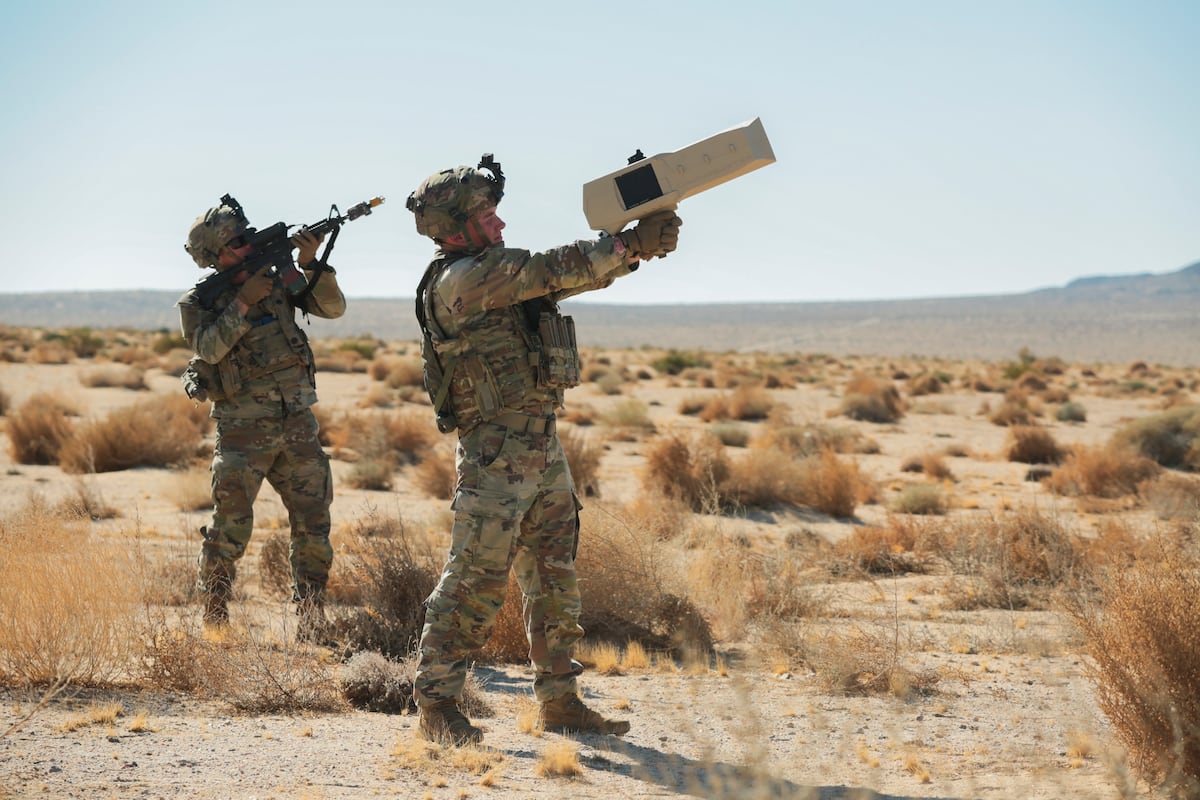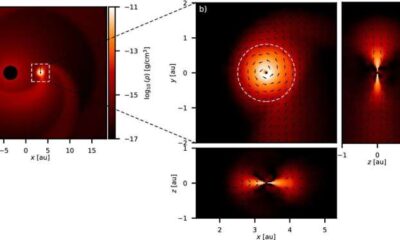World
Army Considers Specialized Counter-Drone Force for Enhanced Defense

The U.S. Army is evaluating the establishment of a specialized counter-drone Military Occupational Specialty (MOS) to better address the growing threat posed by unmanned aerial systems (UAS). According to Capt. Peter Clifton, a commander in the Army’s 110th Intelligence and Electronic Warfare Battalion, this initiative aims to enhance defense capabilities against enemy drones and improve operational effectiveness on the battlefield.
In a recent essay published in the *Army’s Air Defense Artillery Journal*, Clifton argued that a dedicated C-UAS MOS would allow for focused training and strategy in counter-drone operations. “Dedicated C-UAS MOSs will focus on defensive operations by defending maneuver formations from enemy kinetic UAS and ISR [intelligence, surveillance, and reconnaissance] assets,” he wrote. This specialization is expected to help maintain the freedom of maneuver for friendly forces while preventing enemy drones from gathering critical intelligence about their positions.
Current training for counter-drone operations is viewed as insufficient. Clifton highlighted that the Joint C-UAS course is often treated as an afterthought, diverting personnel from their primary responsibilities. He emphasized the challenges faced by units that are expected to perform anti-drone tasks alongside their conventional roles, stating that “adding additional duties to a squad member in an already over tasked squad will severely degrade mission command.”
The Army acknowledges the need for improvement in counter-drone training. A report from the Center for Army Lessons Learned pointed out that C-UAS training is typically secondary to maneuver and combined arms tactics during field exercises at the National Training Center (NTC). This report indicated that C-UAS capabilities are often overlooked until an urgent situation arises, such as a drone swarm over a battalion headquarters.
Research conducted by the Center for Strategic and International Security suggests that while a specialized C-UAS MOS could enhance integration of counter-drone capabilities into maneuver forces, it would also demand significant resources and time for training. This could potentially lead to slower response times, as only authorized C-UAS operators would be able to engage threats.
Clifton also noted an unexpected benefit of creating a counter-drone career field: it could serve as a recruitment tool. He suggested that individuals with a background in technology or gaming, particularly those familiar with operating devices similar to video game controllers, may find the role appealing. This could facilitate a faster and more cost-effective training process.
As the Army continues to confront the evolving landscape of modern warfare, the discussion surrounding the establishment of a specialized C-UAS MOS underscores the necessity for focused training and operational readiness in counter-drone operations. The implications of such a move could significantly impact the Army’s ability to defend against drone threats, ultimately shaping future combat strategies.
-

 Science1 month ago
Science1 month agoOhio State Study Uncovers Brain Connectivity and Function Links
-

 Politics1 month ago
Politics1 month agoHamas Chief Stresses Disarmament Tied to Occupation’s End
-

 Science1 month ago
Science1 month agoUniversity of Hawaiʻi Joins $25.6M AI Project for Disaster Monitoring
-

 Entertainment1 month ago
Entertainment1 month agoMegan Thee Stallion Exposes Alleged Online Attack by Bots
-

 Science3 weeks ago
Science3 weeks agoALMA Discovers Companion Orbiting Giant Star π 1 Gruis
-

 Science2 months ago
Science2 months agoResearchers Challenge 200-Year-Old Physics Principle with Atomic Engines
-

 Entertainment1 month ago
Entertainment1 month agoPaloma Elsesser Shines at LA Event with Iconic Slicked-Back Bun
-

 World1 month ago
World1 month agoFDA Unveils Plan to Cut Drug Prices and Boost Biosimilars
-

 Top Stories1 month ago
Top Stories1 month agoFederal Agents Detain Driver in Addison; Protests Erupt Immediately
-

 Entertainment1 month ago
Entertainment1 month agoBeloved Artist and Community Leader Gloria Rosencrants Passes Away
-

 Business1 month ago
Business1 month agoMotley Fool Wealth Management Reduces Medtronic Holdings by 14.7%
-

 Politics2 months ago
Politics2 months agoNHP Foundation Secures Land for 158 Affordable Apartments in Denver









